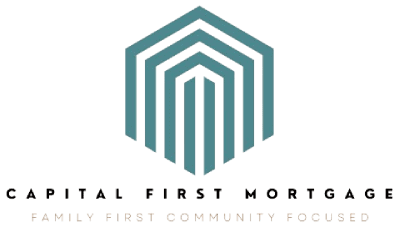- Available in NJ, PA, MD, VA, WV, FL
- Partnered with the largest wholesaler in the country that is an Information Technology driven organization.
- Loan approvals in 7 days, Money is wired for closings first thing in the morning to avoid delays.
- Programs for every scenario.
- We save money using brokers and we pass that savings onto you.
Are you thinking about refinancing but unsure how soon you can do so? Refinancing can be a powerful tool to lower your interest rate, shorten your loan term, or access cash from your home equity. However, many wonder: How soon can you refinance after getting your existing mortgage?
The answer, like most things in finance, depends. This guide will explore the wait times associated with various refinance scenarios and factors influencing the timeline.

Different Loan Types and Wait Times For Refinance
The wait time to refinance depends mainly on your loan type and the specific refinance option you choose.
Conventional Loans
A rate-and-term refinance on a conventional loan typically has no waiting period. You can refinance when you find a better rate and meet the lender’s eligibility requirements.
However, some lenders might impose a waiting period (often six months) if you’re refinancing with the same lender for a cash-out refinance, where you borrow more than your current loan balance and receive the difference in cash.
Government-Backed Loans (FHA, VA, USDA)
Refinancing government-backed loans like FHA, VA, or USDA mortgages often involves a minimum waiting period, even for a rate-and-term refinance. Here’s a breakdown of standard options:
- FHA Streamline Refinance: Typically requires at least six months from the closing date of your current FHA loan.
- VA Streamline Refinance: This program allows veterans with existing VA loans to refinance with minimal paperwork. There’s generally no minimum waiting period, but some lenders might have their requirements.
Cash-Out Refinance
Regardless of the loan type (conventional, FHA, VA, etc.), a cash-out refinance usually requires a longer wait time, often around six months. This is because lenders want to ensure sufficient equity has built up in your home to justify borrowing a larger loan amount.
Additional Factors Affecting Refinance Timing
While loan type plays a significant role, other factors can influence how soon you can refinance:
- Credit Score: A strong credit score (typically above 670) can expedite the refinance process for some lenders.
- Home Equity: Higher home equity generally translates to a faster approval process, especially for cash-out refinances, where equity is collateral for the additional loan amount.
- Lender Requirements: Individual lenders might have internal policies regarding wait times, so checking with them is essential.
Once you determine if you can refinance, think about whether you should. Refinance rates in 2024 are steadily hovering around 7%. Aside from the current interest rates, decide on your reason for refinancing, as it may help you determine if now is the right time.
If the costs of refinancing can be recovered in the savings on your monthly payment in a timeframe that you’re happy with, it may be worth refinancing.
Steps to Take Before Refinancing
Before diving into refinancing, take these proactive steps to ensure a smooth process:
- Check Your Current Loan Documents: Review your existing mortgage documents for any prepayment penalties that might apply if you refinance before a specific timeframe.
- Boost Your Credit Score: Take steps to improve your credit score. A higher score can qualify you for better refinance rates and shorten the wait time with some lenders.
- Shop Around for Lenders: Don’t settle for the first offer you receive. Compare rates and terms from multiple lenders to find the most competitive option.
- Gather Necessary Information: To expedite the refinance application process, get organized by collecting documents like pay stubs, bank statements, and proof of homeownership.
Conclusion
Wait times for refinancing vary depending on your loan type, chosen refinance option, and individual lender requirements.
While this guide outlines general guidelines for refinancing, your financial situation should be considered to determine the right time.
Ready to explore your refinance options? Contact MyPerfectMortgage.com today and we’ll match you with the perfect lender.
Our advise is based on experience in the mortgage industry and we are dedicated to helping you achieve your goal of owning a home. We may receive compensation from partner banks when you view mortgage rates listed on our website.




